Jacke Wilson's Blog, page 14
April 23, 2022
The History of Literature #394 – Freud and Fiction | PLUS An Assia Wevill Preview
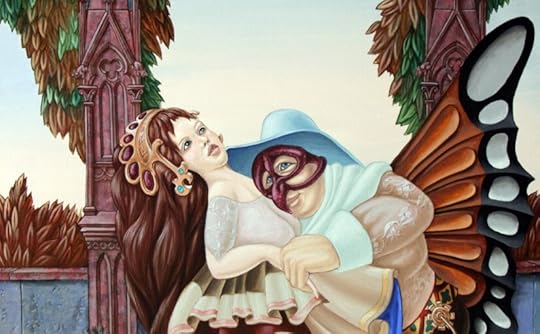
What narrative techniques did Freud borrow and employ? What was the effect? And what did it mean for the literary critics who followed? Following his look at the life and major works of Sigmund Freud, Jacke describes Freud and his followers’ at-times fraught relationship with fiction and fiction writers, with a particularly close look at Freud’s famous work “Dora: An Analysis of a Case of Hysteria.” PLUS a preview of our upcoming episodes featuring Sylvia Plath, Ted Hughes, and Assia Wevill.
Additional listening ideas:
Episode 392: Sigmund FreudEpisode 112 The Novelist and the Witch Doctor – Unpacking Nabokov’s Case Against Freud (with Joshua Ferris)Episode 48 HamletHelp support the show at patreon.com/literature or historyofliterature.com/shop. The History of Literature Podcast is a member of Lit Hub Radio and the Podglomerate Network. Learn more at www.thepodglomerate.com/historyofliterature.
April 22, 2022
The History of Literature #393 – Writers in Odessa, Ukraine’s “Black Sea Pearl” | PLUS Margot Reads Boswell

Still recovering from his immersion in Sigmund Freud, Jacke looks instead to one of the world’s great literary cities: Odessa. More than 300 writers have lived in, traveled through, and/or written about Ukraine’s “pearl of the Black Sea” – what did they find so compelling? And what did they write about afterwards? PLUS we continue our conversation with Scottish novelist Margot Livesey, who has been reading Boswell’s Life of Johnson, generally considered one of the greatest biographies ever written (and one of Jacke’s favorite books).
Additional listening suggestions:
Weeping for GogolNatalia GinzburgChekhov’s “The Lady with the Little Dog”Help support the show at patreon.com/literature or historyofliterature.com/shop. The History of Literature Podcast is a member of Lit Hub Radio and the Podglomerate Network. Learn more at www.thepodglomerate.com/historyofliterature.
April 21, 2022
The History of Literature #392 – Sigmund Freud
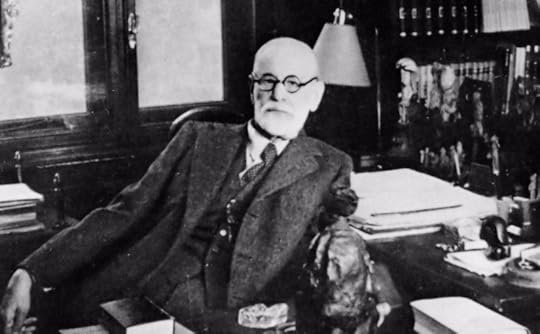
As the father of psychoanalysis, Sigmund Freud (1856-1939) was one of the most influential thinkers of the twentieth century. Although many of his claims and theories are still hotly debated, for decades his ideas dominated writers and thinkers around the world – and they continue to exert a major influence on how we view ourselves and our society. In this episode, we look at Freud’s life and some of his most famous works, setting the stage for an analysis of Freud’s impact on literature.
Additional listening ideas:
Episode 112 – The Novelist and the Witch-Doctor: Unpacking Nabokov’s Case Against Freud (with Joshua Ferris)Episode 164 – Karl MarxEpisode 174 – The Oedipus Trilogy (with Bryan Doerries)April 20, 2022
The History of Literature #391 – Mark Twain’s Publishing Fiasco | Great Literary Terms and Devices Part 2 (with Mike Palindrome)
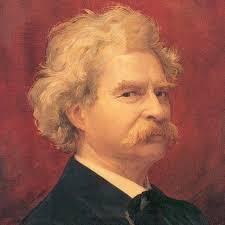
Mark Twain was an enormously successful writer and a horrendous businessperson, with a weakness for gadgets and inventions that cost him a fortune. In this episode, Jacke takes a look at his efforts to start his own publishing company, which started off strong but quickly descended into bankruptcy and ruin. What was he trying to accomplish? And what were the books that brought him down?
After that, Mike Palindrome, the President of the Literature Supporters Club, joins Jacke for part two of a discussion on great literary terms and devices. The two old friends recount the first ten they chose and – tongues firmly in cheek – select THE GREATEST LITERARY TERMS OF ALL TIME, numbers 11-20.
Additional listening ideas:
Episode #384 – A Writer’s Tools – Top 10 Literary Terms and Devices | PLUS F. Scott Fitzgerald’s Writing AdviceEpisode #90 – Mark Twain’s Final RequestEpisode #176 – “The Use of Force” by William Carlos WilliamsApril 19, 2022
The History of Literature #390 – Victor Hugo
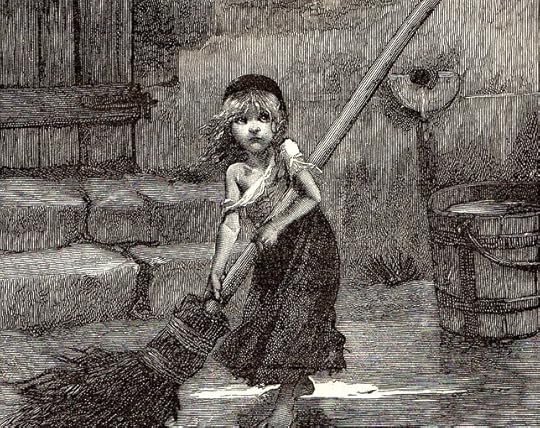
In this episode, Jacke takes a look at Victor Hugo (1802-1885), whose poetry, plays, and novels made him one of the leaders of the nineteenth-century Romantic movement. In addition to his famous novels Les Misérables and The Hunchback of Notre-Dame, we also look at some of his lesser known works; his family background; the legend of his conception in a Roman temple atop a mountain; his belief in the transformation of poetry throughout the history of human civilization; and the gusto with which he approached both life and literature.
Additional listening suggestions:
152 George SandAlbert CamusStendhalApril 18, 2022
The History of Literature #389 – Thomas Pynchon (with Antoine Wilson)

“A screaming comes across the sky. It has happened before, but there is nothing to compare it to now.” Such is the opening of Thomas Pynchon’s Gravity’s Rainbow (1973), the novel that won the National Book Award but repulsed the Pulitzer Prize Committee. Pynchon’s special blend of paranoia and postmodernism made him one of the hallmark authors of the Cold War era. In this episode, Jacke takes a look at Pynchon’s life and works, then is joined by a contemporary author, Antoine Wilson (Mouth to Mouth), for a discussion of his writing process and his recent trip to Pynchonland.
ANTOINE WILSON is the author of the novels Panorama City and The Interloper. His work has appeared in The Paris Review, StoryQuarterly, Best New American Voices, and The Los Angeles Times, among other publications, and he is a contributing editor of A Public Space. A graduate of the Iowa Writers’ Workshop and recipient of a Carol Houck Smith Fiction Fellowship from the University of Wisconsin, he lives in Los Angeles. His website is: AntoineWilson.com.
Additional listening suggestions:
380 Ian Fleming | The Black James Bond348 Philip Roth (with Mike Palindrome)318 Lolita (with Jenny Minton Quigley)April 17, 2022
The History of Literature #388 – Sense and Sensibility
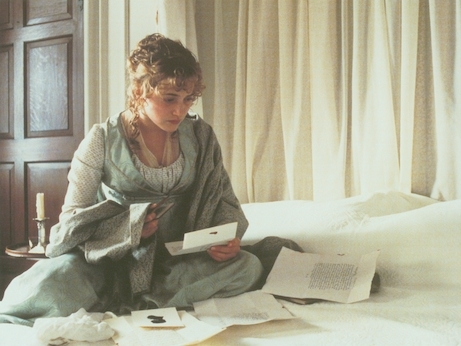
“I am never too busy to think of S&S,” Jane Austen wrote to her sister, referring to her 1811 novel by its initials, “I can no more forget it, than a mother can forget her suckling child.” Sense & Sensibility was Jane Austen’s first published novel. First begun when she was in the throes of her doomed dalliance with Thomas Lefroy, the novel contains the familiar Austen project of a Hero, a Heroine, a Search for Love, and the Obstacle Called Money. In this case, the heroines are two sisters named Elinor and Marianne, representing the “sense” (prudence, restraint) and “sensibility” (passion, impulsiveness) of the title.
In this episode, Jacke takes a look at the writing of Sense & Sensibility; the still common themes contained within this classic novel; and the 1995 film adaptation, in which Emma Thompson, herself in the midst of an Austen-like entanglement, nevertheless drives a shiv into Jacke’s battered old heart.
Additional listening suggestions:
Episode 85: Pride and PrejudiceEpisode 302: Jane in Love: the Story of Jane Austen and Thomas LefroyEpisode 303: The Search for Darcy: Jane Austen, Thomas Lefroy, and the World of Pride and PrejudiceApril 16, 2022
The History of Literature #387 – Loving Virginia Woolf | Fashion in Literature (with Lauren S. Cardon)
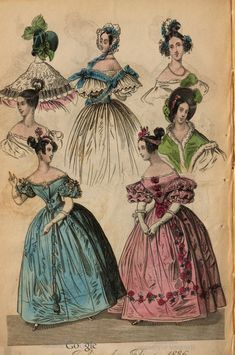
What’s it like to be in love with a genius? How does one express oneself? Jacke takes a look at a beautiful 1926 love letter that Vita Sackville-West sent to Virginia Woolf. Then Professor Lauren S. Cardon, author of FASHIONING CHARACTER: Style, Performance, and Identity in Contemporary American Literature, stops by for a discussion of how authors use fashion choices to reveal character – and how this has changed over time.
Lauren S. Cardon is Associate Professor of English at the University of Alabama and the author of Fashion and Fiction: Self-Transformation in Twentieth-Century American Literature and The “White Other” in American Intermarriage Stories, 1945-2008.
Additional listening suggestions:
Keats’s Great Odes (with Anahid Nersessian)Jane in Love: The Story of Jane Austen and Thomas LefroyT.S. Eliot and The Waste LandApril 15, 2022
The History of Literature #386 – Gogol’s Ukrainian Nights | HOL Presents “Mysteries of a Merlin Manuscript” (A Book Dreams Podcast)
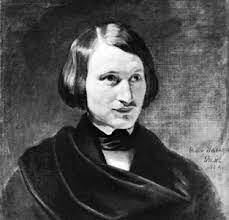
Jacke takes a look at Nikolai Gogol’s early stories about his native Ukraine, including two famous descriptions of Ukrainian nights. Then Jacke turns things over to Eve and Julie from the Book Dreams Podcast, as they interview a scholar about a surprising find: in 2019, a librarian in Bristol discovered four scraps of parchment bearing the names “Merlin” and “Arthur.” Their guest, Dr. Laura Chuhan Campbell, was part of an interdisciplinary team working to determine the origins and significance of these medieval manuscripts.
Learn more about the Book Dreams Podcast at https://www.bookdreamspodcast.com/
Additional listening ideas:
Need more Gogol? Try Episode 189: Weeping for GogolFeeling medieval? Try Episode 286: J.R.R. Tolkien or Episode 108 Beowulf (a.k.a. Need a Hero? Get a Grip…)In the mood for something else? Try Episode 362: Kurt Vonnegut (with Tom Roston)April 14, 2022
The History of Literature #385 – The Gettysburg Address
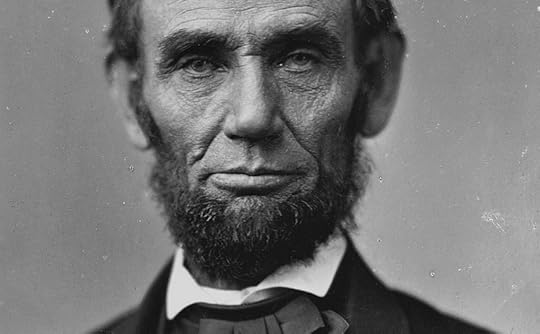
In November of 1863, U.S. President Abraham Lincoln boarded a train for Gettysburg, Pennsylvania. His heart was heavy with the cost of two years of a bitter civil war, his body fatigued and feverish from what was likely the onset of smallpox. In the midst of personal grief and political turmoil, he drafted and delivered one of the greatest political speeches ever written. In roughly 270 words, the Gettysburg Address (or “America’s Gospel,” as Tom Brokaw called it) managed to pay tribute to fallen soldiers, dedicate a cemetery in their honor, and crystallize the central dilemma at the heart of the American experiment. In this episode, Jacke looks at ten sentences that defined a nation and asked it to look deeply into its past, its future, and its soul.
Additional listening ideas:
For more on race in America, try our three-part series on the dispute between James Baldwin and William Faulkner, starting with Baldwin v Faulkner.Like presidential history? We talked about Thomas Jefferson in our episode on Phillis Wheatley and in our conversation on The Profound Wisdom of Black Life and Literature with Farah Jasmine Griffin.In the mood for something different? You might like the episode in which Jacke and Mike revisit J.D. Salinger’s Catcher in the Rye.Help support the show at patreon.com/literature or historyofliterature.com/shop. The History of Literature Podcast is a member of Lit Hub Radio and the Podglomerate Network. Learn more at www.thepodglomerate.com/historyofliterature.



